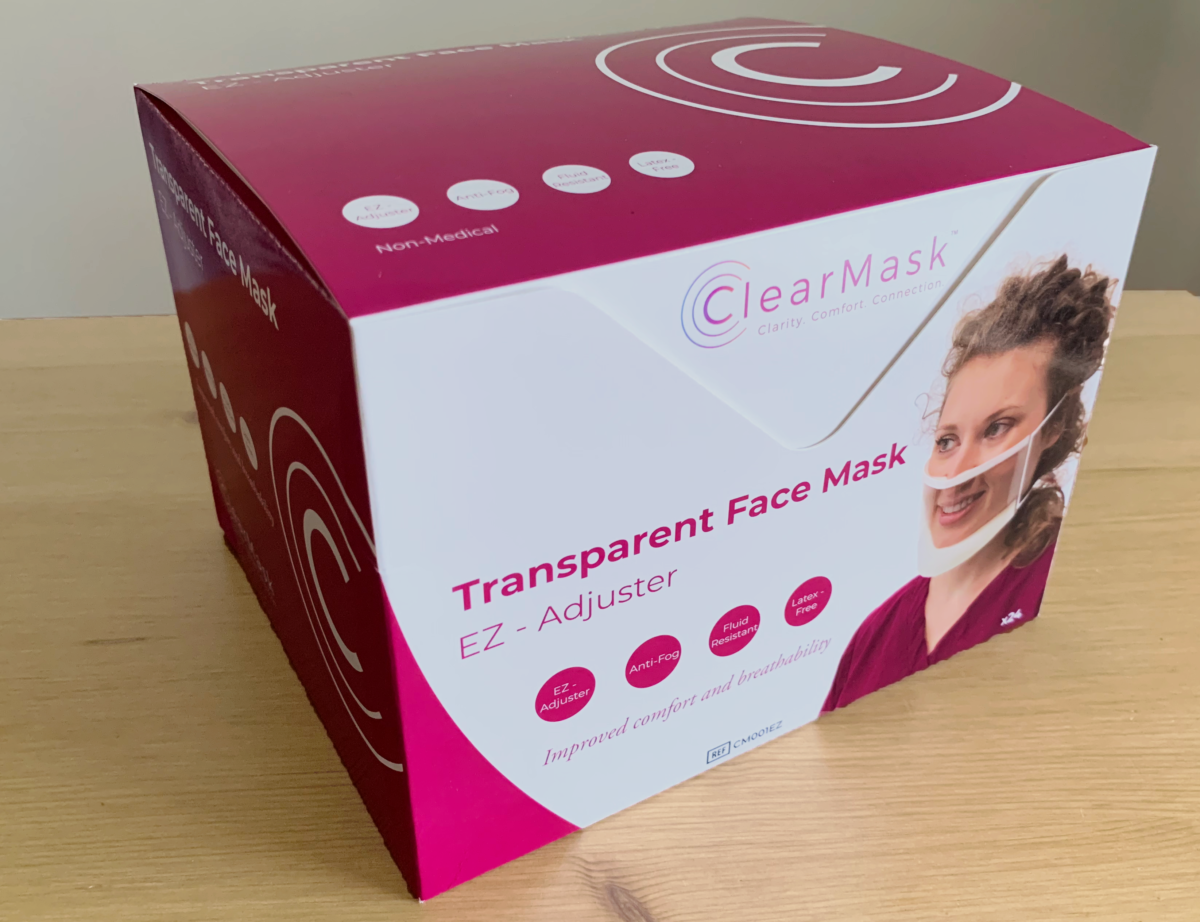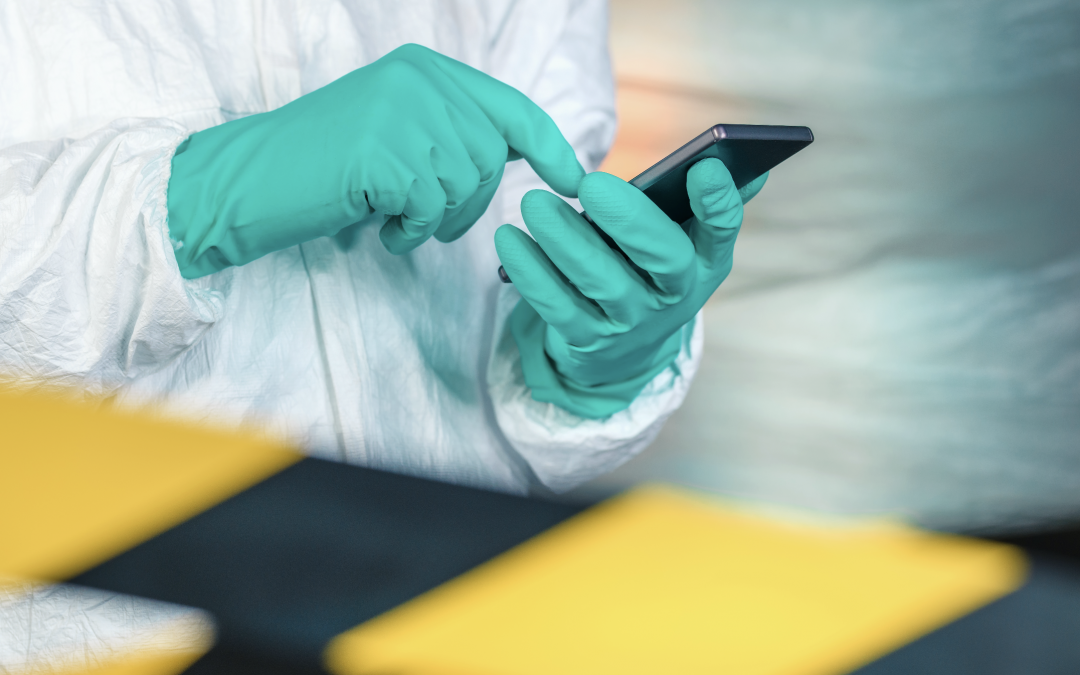When there’s a crisis affecting everyone with solutions needed quickly, people look to the tools they have and figure out how they can help the response.
That’s what happened in Baltimore’s startup community at March’s onset of the COVID-19 pandemic across the U.S. Especially among Baltimore’s cluster of health-focused startups that are being founded out of the city’s medical institutions, there was a sense that technology could help to fill gaps.
Months later, it’s becoming apparent that the changes made in a hurry will have lasting impacts on the companies going forward. Three CEOs from emocha Mobile Health, ClearMask and StoCastic talked with ETC President Deb Tillett about their experiences applying their products for the crisis at the Oct. 9 Baltimore Innovation Week Innovation Celebration.
Here’s a look at some takeaways:
Pivot for pandemic
Often, startups develop technology for a fairly narrow use case that is tailored to have maximum market impact. However, groundbreaking technology often has multiple use cases. During the pandemic, the three startups applied technology that had already been developed for the scenario.
Some startups have seen a previous use case once again come to the fore. During the Ebola epidemic in 2015-2016, emocha Mobile Health turned its asynchronous mobile video and monitoring software toward helping the State of Maryland keep tabs on patients traveling from Africa for symptoms. It was then used by the Johns Hopkins Hospital Biocontainment Unit to monitor healthcare workers. The same type of use to have patients record video check-ins and report symptoms applied in the COVID-19 pandemic and it was rolled out with local hospitals. The company soon found that the scope of the pandemic meant software alone would not be enough, said CEO Sebastian Seiguer.
“Our services team stepped up and we launched not only a symptoms monitoring program and software but a full engagement service to solve all problems that happen on a given day and close the loop that day,” Seiguer said. Along with healthcare, the service is also available for schools, municipalities, employers and retirement homes.
Others have seen a product find a wider market than initially expected. ClearMask developed a transparent surgical mask for use in the clinic. With the pandemic, there was a shortage of protective equipment. Since the company uses different materials than what’s used to construct a typical surgical mask, the team was able to get supplies out to government agencies and hospitals amid shortages, said CEO Aaron Hsu. With mask use picking up nationwide, the company found wider demand beyond healthcare, with schools, municipalities and companies seeking an accessibility-inclined mask that allowed folks to see facial expressions. It was able to expand internationally in Canada and the U.K., as well.

A box of ClearMasks. (Courtesy photo)
The pandemic has also meant changing the setting for a product. For digital health startup StoCastic, the focus of its products for triage and predictive modeling was on the emergency room of the hospital. In the pandemic, Illinois-based client OSF Healthcare was seeking a tool that would help to take the triage of people who potentially contracted COVID-19 to the community. The company combined its platforms for risk scoring and scheduling into one, and help with supporting clinical decisions as well as social determinants of health. Through work with another client, it is now serving most patients in Illinois, said CEO Eric Hamrock.
Growing fast
In order to develop these tools, the companies had to move fast to fill the gaps presented by the pandemic.
Hamrock said StoCastic moved in two weeks to get its new solution up and running. A week and a half later, it was deployed with the client. That’s a big change for healthcare.
And in many cases it had to happen as teams were shifting to remote work. Through a frenetic time, Hamrock said it has been especially important to keep lines of communication open and keep tabs on team members as people.
“The work is great and we all work, but it’s really about how do we care about each other,” he said.
In a time of fast growth, ClearMask is returning to a culture it has built over the years. That means team members are helping each other set boundaries around work, even when there’s a lot to do. When someone needed to take off after weeks of sprinting, the team stepped up to take on their tasks.
“It’s having that trust in that if you ask for help you will receive it, and that your employees are going to work as hard as they can, they’re going to have ownership and when they tell you something you’re going to believe in it,” Hsu said.
It has also meant creating cohesion among new team members. Emocha grew from 20-plus employees to 55 in a short period, and a time when it was working in an area outside the market where it was growing prior to the pandemic. To help the new team members get a sense for where the company has been and where it’s going, Seiguer said they’ve had sessions to help communicate the mission with folks such as Johns Hopkins infectious disease doctors who invented the technology.
Talking Baltimore
The panel offered a look at three companies that started out of Johns Hopkins, grew in the earliest stages at city-backed East Baltimore incubator ETC and are now serving customers nationally and beyond.
Given that they have experience being part of the entrepreneurial community in the city and now working with folks outside of it, this reporter asked how they describe Baltimore when others ask about what it’s like to be headquartered here.
For ClearMask, which was founded in 2017, the city was a place to build with access to resources like business-building programs at ETC’s AccelerateBaltimore and JHU’s Social Innovation Lab, as well as product prototyping at Pigtown’s Harbor Designs and Manufacturing. Now it’s growing via partnerships such as its manufacturing relationship with Gaithersburg-based Xometry.
“It’s just a natural location for a lot of reasons,” Hsu said. “One, we’ve been able to source our entire operations here in Baltimore and Maryland,” he said.
Tillett has plenty conversations of this nature, as well, and returns to the city’s tight-knit nature.

Technical.ly Baltimore’s original view at the ETC Highlandtown coworking space. (Photo by Stephen Babcock)
“The best part of Baltimore is it’s Smalltimore and you’re one degree of separation from anyone you need to know,” she said.
Hamrock, who leads a company that is a member at ETC and also works at Towson University’s incubator, said that close community is also supportive.
“I feel like everyone is trying to push things forward together rather than try to cut each other down,” he said.
When emocha started working out of ETC, it was one a couple spots in the city where startups congregated. Entering a new decade, there are many more spaces now, and the startup community’s many individual companies have a big collective presence in the city.
“It’s a real part of the economy,” Seiguer said. “Larger companies cannot move this quickly and specialize in the types of things you’re hearing from Eric and Aaron. I think in Baltimore we have a very vibrant community now.”
Join the conversation!
Find news, events, jobs and people who share your interests on Technical.ly's open community Slack

Baltimore daily roundup: Medtech made in Baltimore; Sen. Sanders visits Morgan State; Humane Ai review debate

Baltimore daily roundup: The city's new esports lab; a conference in Wilmington; GBC reports $4B of economic activity

Baltimore daily roundup: Find your next coworking space; sea turtle legislation; Dali raided and sued


